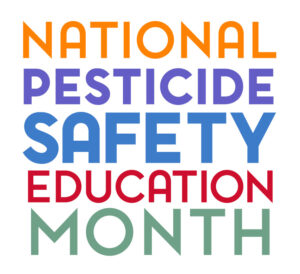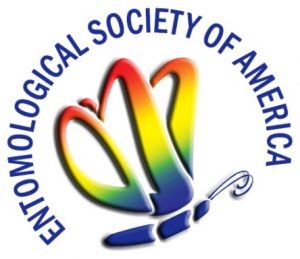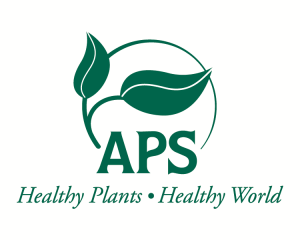
Rutgers NJAES celebrates February as National Pesticide Safety Education Month with a selection of opportunities for pesticide applicators to renew their knowledge of pesticide safety and regulations, and earn CORE credits, throughout the month in programs hosted by Rutgers NJAES County Agents and commodity programming, as well as other entities. Enjoy the Weed Science Society of America article on National Pesticide Safety Education Month posted at this end of this post.
These opportunities are posted to the Rutgers NJAES Plant and Pest Advisory by Agents and include dates, times, location, topics and presenters, NJDEP recertification creidts, and registration information. Some recent postings of meetings that include CORE offerings (click on the links for registration details.):
NJACTS Winegrape Session February 7, 2023. 9:30 am to 12:30 pm. Atlantic City, NJ.
North Jersey Commercial Vegetable Grower Meeting February 21, 2023. 8:30 am – 3:00 pm. NJAES RCE Hunterdon County. Flemington, NJ.
Central Jersey Turf and Ornamental Institute, February 22, 2023. 8:30 am – 3:00 pm. NJAES-sponsored. Battleground Country Club, Manalapan, NJ. CJTOI Brochure 2023.
Central Jersey Vegetable Growers Meeting, February 24, 2023. 8:30 am – 3:00 pm. NJAES RCE Monmouth County. Freehold, NJ. CJVGM brochure 2023.
Reed & Perrine Turf & Ornamental Seminar February 28, 2023. 8 am to 4 pm. NJAES speakers hosted by R & P. Battleground Country Club, Manalapan, NJ.
North Jersey Commercial Tree Fruit Grower Meeting March 1, 2023. 8:30 am – 3:00 pm. NJAES RCE Hunterdon County. Flemington, NJ.
South Jersey Commercial Fruit Growers Meeting Program. March 1, 2023. 8:30 am- 3:30 pm. NJAES. Rutgers Agricultural Research & Extension Center. Bridgeton, NJ.
Stay tuned to the Plant and Pest Advisory for postings of future NJAES educational opportunities. Vegetable, Tree Fruit, Winegrape, and Blueberry Twilights will begin to be schduled for spring evenings soon. Blueberry Open House. March 8, 2023. Vegetable Integrated Crop Management Meeting. April date TBA.


WESTMINSTER, Colorado – January 31, 2023 – February is National Pesticide Safety Education Month and a time to review pesticide safety practices at your home or place of business, the Weed Science Society of America (WSSA) says. WSSA and the American Phytopathological Society (APS) and the Entomological Society of America (ESA) are among the many organizations in public and private sectors that promote pesticide safety awareness during February and throughout the year.
“There is no downtime in the safe handling and use of pesticides,” says Lee Van Wychen, Ph.D., executive director of science policy for the Weed Science Society of America. “It is important for each of us to focus on safety to protect ourselves, others and the environment during pesticide transport, storage, application and disposal.”
The National Pesticide Safety Education Month webpage contains a quiz to check your knowledge of basic pesticide safety principles, as well as a self-assessment to evaluate your own pesticide safety practices at home and at work. The site also includes educational resources produced by Land Grant University Pesticide Safety Education Programs.
“We all strive for a safe home environment, healthy crops, successful conservation efforts, protection of agricultural workers and more – all of which require the safe handling and use of pesticides,” Van Wychen says.
About the Weed Science Society of America
The Weed Science Society of America (WSSA), a nonprofit scientific society, was founded in 1956 to encourage and promote the development of knowledge concerning weeds and their impact on the environment. The Society promotes research, education and extension outreach activities related to weeds, provides science-based information to the public and policy makers, fosters awareness of weeds and their impact on managed and natural ecosystems, and promotes cooperation among weed science organizations across the nation and around the world. For more information, visit www.wssa.net.
About the American Phytopathological Society
The American Phytopathological Society (APS) a nonprofit, professional scientific organization was founded in 1908. With more than 5,000 members globally, this organization advances the science of plant diseases and the practice of plant health management. For more information, visit www.apsnet.org.
About the Entomological Society of America
The Entomological Society of America (ESA) is the largest organization in the world serving the professional and scientific needs of entomologists and people in related disciplines. Founded in 1889, ESA today has over 7,000 members affiliated with educational institutions, health agencies, private industry, and government. Members are researchers, teachers, extension services personnel, administrators, marketing representatives, research technicians, consultants, students, and hobbyists. For more information, visit www.entsoc.org.
Contact:
Lee Van Wychen
Executive Director of Science Policy
National & Regional Weed Science Societies
Lee.VanWychen@wssa.net
202-746-4686